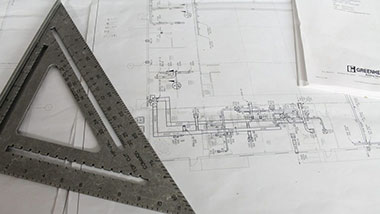Court Considers Challenge To Proposal For Settlement As “Nitpicking”
Personal InjuryIn the case of W. Riley Allen v. Jairo Rafael Nunez, Case Number SC16-1164 (Fla. October 4, 2018), the Florida Supreme Court issued an opinion upholding the simple terms of a proposal for settlement and calling a challenge to “plain language” as “nitpicking.”
Underlying Facts
This case arose when Allen sued Gabriel Nunez and his father (Jairo) for hitting and damaging his parked car. Gabriel was driving while Gabriel’s father was the owner of the car. Gabriel is responsible as the driver but his father, as the vehicle’s owner, is vicariously liable under Florida’s “dangerous instrumentality” doctrine (* the dangerous instrumentality doctrine makes the owner jointly and vicariously liable with the driver for negligence).
In any event, Allen filed two proposals for settlement during the litigation pursuant to Fla. R. Civ. P. 1.442 and section 768.79, Fla. Stat. (you must cite both authorities in a proposal for settlement in order to be valid). One proposal was for Gabriel in the amount of $20,000. The other proposal was to Jairo also in the amount of $20,000. These proposals did not promise to release one or the other in event that one of the proposals was accepted. The case did not indicate whether the plaintiff made a “demand” of $20,000 to settle the entire case or $40,000.
Thereafter, the jury returned a verdict of approximately $29,000 (which is more than 25% of what had been offered) and Allen sought attorney fees of approximately $343,000 (* remember that the “sanction” for failing to accept a proposal for settlement is that the loser has to pay the winner’s attorney fees and costs after the proposal expires).
The Fifth DCA held that the proposals were ambiguous due to the fact that Gabriel and Jairo were jointly and severally liable and that the proposals did not specify whether the entire case would be dismissed in the event that one proposal or the other was accepted. On appeal to the Florida Supreme Court, the Court found that the arguments presented at the Fifth DCA were “nitpicking” and that the proposals were not ambiguous. In other words, the plain meaning of the proposal must be given meaning.
Proposals For Settlement Are Tricky For Plaintiffs
Proposals for settlement from Defendants are straightforward. The parties with the money can choose to each make their own individual offers to the plaintiff or they can combine their money for a “joint” offer to a plaintiff if the defendants are “jointly and severally” liable. These pathways allow defendants to make a “take it or leave it” type offer to plaintiffs.
On the other hand, proposals for settlement are trickier for plaintiffs in personal injury cases. Due to ambiguities in proposals for settlement in the past and the decision in Attorney’s Title Fund v. Gorka, each proposal for settlement must be “apportioned” and able to be accepted or rejected independently in order to be enforceable. This idea was just reinforced in Atlantic Civil, Inc. v. Edwin O. Swift, III, 3D15-1594 (Fla. 3rd DCA October 3, 2018) where a joint offer from a plaintiff was not enforced because it could not be “independently accepted.”
The problem for plaintiffs is that there are multiple people responsible for their injury in an indivisible way but yet Florida law on proposals for settlement do not clearly allow a pathway to propose settlement to them in the same indivisible manner.
This case provides some clarity for plaintiffs in Florida who are suing defendants who are jointly and severally liable in that it does not require a plaintiff to dismiss the entire lawsuit in the event that one proposal is accepted. Just as in this case, the total amount being demanded by the plaintiff from all responsible sources is helpful in determining what the intent of the proposal was. I suspect that engaging in this type of analysis would further frustrate the courts as “nitpicking” but knowing the total amount sought from indivisibly responsible parties is essential to knowing what was actually intended rather than a “gotcha” situation.
Seek Help With Your Florida Personal Injury Case
Filing a personal injury lawsuit in Florida has become a complicated endeavor. To do it properly, you will need the assistance of a personal injury attorney. We are located in Lakeland, Florida and offer clients a free consultation to determine whether you have a case or not. Schedule your free consultation today.


